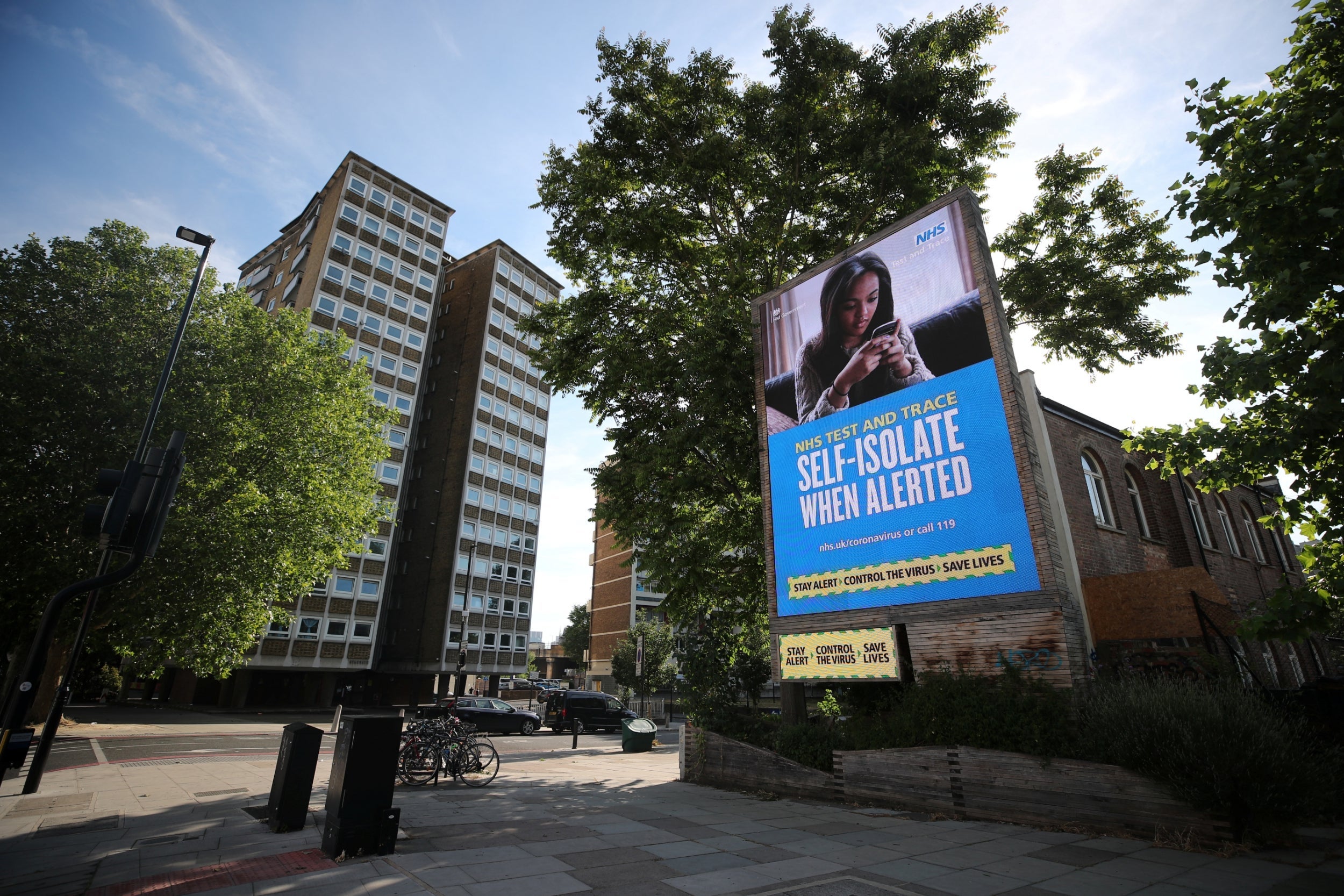‘The fatigue has lasted for months and months’: Meet the 'long haulers' living with the long-term impact of Covid-19
They call themselves the 'long-haulers' or 'long-tail'; around the world thousands are discovering Covid-19 doesn't always come and go in two weeks. Sophie Gallagher speaks to those struggling to be heard as their symptoms drag on for months


By day four of presenting with coronavirus symptoms, on 19 March, Tobi Rachel Akingbade, from London, felt so scared she called NHS 111. The 28-year-old, who believes she contracted the virus from colleagues who tested positive (although she herself was never tested) says she felt like “she’d been run over by a truck and then thrown off a cliff” – even the muscles in her face ached and her eyes hurt. Tobi, who has no underlying health conditions, says she was told by the operator to call back only if she stopped breathing.
By day 13, after spending two weeks self-isolating, Tobi thought she might be strong enough to step into her garden. She managed to take one deep breath of air before going back inside. At this point most medical advice suggests she should have been coming to the end of her symptoms: the NHS says people should isolate for just 7 days (although continue if symptoms persist) or 14 days if they are asymptomatic but have been in contact with a carrier or are awaiting test results.
It wasn’t until day 30 before Tobi says her body even started to “feel normal again”. When I speak to her on 10 June – three months later – she is still not back to full health. She tells me how she continues to struggle with breathing; suffers from flashbacks of gasping for air; has to gather enough energy to get to the toilet; and needs to wear sunglasses to open the bedroom curtains and let in the light. “I would not wish this on my worst enemy. I lost days of my life to this virus and I am aware of how I was very close to death.”
Official guidelines say Covid-19 lasts two weeks and it is a virus which is largely debilitating for elderly people or those with underlying health conditions, leaving others with mild symptoms. In February the World Health Organisation (WHO) published a review of preliminary data from Chinese hospitals and concluded the “median recovery time” was two weeks, and three to six for those with critical cases. But an increasing number of survivors know better than that.
Covid-19 has existed for fewer than six months, and it is easy to forget – given our vast catalogue of human scientific understanding – how little we still know about this novel virus. But as it spreads (global confirmed infections now stand at 7.5 million) the narrative, particularly that it is “just like flu” – the UK government followed a flu-model for several months in early 2020 – is starting to slowly change.
The NHS estimates that of coronavirus patients who require hospitalisation, 45 per cent will need ongoing medical care, 4 per cent require inpatient rehab and 1 per cent need permanent acute care. But a growing number of people are finding themselves stuck in coronavirus limbo; not serious enough to be hospitalised nor mild enough to have symptoms pass within 7-14 days.
Sometimes I can manage about half of what I used to, then suffer for several days after...
Jennifer Forbes 41, Truro, from Cornwall got ill in mid-March. She was never tested for Covid-19 but had been in contact with a friend who then tested positive. Despite having no underlying conditions she had symptoms of extreme lethargy, tightness in her chest and difficulty breathing. Although Jennifer says the “truly scary part” of the illness has passed she has been left with restricted breathing for months.
“There is some slight change over the last few weeks, but it feels very slow, and still backwards and forwards,” she says. “I kept saying I was better, only to slip back again”. Today she can only concentrate if she has had a lot of rest beforehand. “Sometimes I can manage about half of what I used to, then suffer for several days after.”
At this rate of progress she predicts she will not be back to her former level of fitness for another three to six months.
Luke Hanrahan, 34, from west Dulwich, started with symptoms on 20 March and was diagnosed with Covid-19 over the phone by his GP. He was previously fit and well. “It felt like my brain was being squeezed, I had a fever and a pain in my lungs.” A month later Luke tried to return to work but fainted in the toilets about 20 minutes after arriving. “It has been one of the weirdest periods in my life.
“The symptoms kept coming back in waves – I’d wake up in the middle of the night with muscle spasms. I’d be fine one day and having to spend the next three in bed,” he says. “The fatigue has lasted for months and months...the other day I had a sudden awareness that it had affected my mind. My memory from March and April is a total blur.” His sense of smell has still not returned.
People like Tobi, Jennifer and Luke, will not find themselves included in any official coronavirus statistics: they haven’t been to hospital, haven’t been tested, and haven’t died as a result. They are in the middle of a statistical venn diagram that misses their experience, going uncounted and in some cases, feeling invisible in the official narrative or media coverage.
And it isn’t just a small group of people: on 12 May research from King’s College, London, found one in 20 patients experience long-term symptoms for at least a month, sometimes longer. A separate study, developed by health app ZOE and endorsed by NHS Wales and NHS Scotland, asked 3.9 million participants to report on their health during coronavirus. It found one in 10 are ill for more than three weeks and some may suffer for months.
Another online survey of 151 medical professionals who fell ill in March found 68 are still unable to work. A further 26 went back, only to stop again when symptoms came back later. Elsewhere in Europe, Italian doctors, whose experiences have regularly been touted as two weeks ahead of the UK, have already shared observations of agonisingly-long recovery times. And patients in France are coming together to call for recognition over what they describe as “long term Covid”.

Paul Garner, professor of infectious diseases at Liverpool School of Tropical Medicine, wrote a blog for the British Medical Journal (BMJ) about his experience of coronavirus, sharing the long-term implications. He said: “For almost seven weeks I have been through a roller coaster of ill health, extreme emotions, and utter exhaustion. Although not hospitalised, it has been frightening and long. The illness ebbs and flows, but never goes away.”
Some medical groups have already acknowledged this – the Chartered Society of Physiotherapy has issued guidance on post-Covid fatigue, recognising the growing community needing assistance – but Garner says all “health professionals, employers, partners, and people with the disease” need to know that the illness can last for much longer and “the long tail is not some “post-viral fatigue syndrome”—it is the disease”. Garner says it is only with this knowledge that patients can “understand and cope” the unpredictable course of this illness.
Not only does the common narrative fail to take into account the longevity of the disease but some of the wide-ranging symptoms. The official NHS list still only includes a persistent cough, fever and loss of taste and/or smell. But other reported symptoms include shortness of breath, fatigue, headaches, and chronic problems with lungs, heart, brain and kidneys or organ damage.
It feels like I could have these [symptoms] forever because they just haven’t gone away...
Caitlin Thomas, 57, from Southampton, first got symptoms on 17 March but wasn’t tested (her GP diagnosed her with Covid-19 in a web-consultation on 1 April). “Three months later she still has symptoms – which get worse in cold and wet weather. “It has continued in pretty much the same state to the present date and shows no signs of going away,” she says. “It feels like I could have these [symptoms] forever because they just haven’t gone away.”
Jenna Macciochi, an immunologist at University of Sussex, says “it is not entirely clear” why these long-tailers exist but suggests a couple of possibilities. “Some people might harbour virus for long after their symptoms have gone but their immune system will still be involved in fighting the infection which could provide waves of various symptoms. It is also possible that a person harbours viral particles for a prolonged time after infection which are continually stimulating the immune system at a low level.”
This is a trend seen in similar viruses, including SARS. “We know from SARS 1 that around 30 per cent of sufferers had reduced lung function and persistent changes on chest X-rays 12 months after their recovery,” says Macciochi. In a study of 233 Hong Kong residents who survived the SARS epidemic of 2003, about 40 percent had chronic-fatigue problems after three years or so. The same was true of Ebola in West Africa.
For many, not being believed has been one of the biggest struggles. Many are seeking out online communities, like the #1in20 Facebook group, to validate their long-term illness. The private group now has over 2,500 members from the UK alone. There survivors discuss everything from buying oximeters on Amazon (a tool to measure oxygen saturation in the body), rare possible-Covid symptoms and inspirational quotes, including one post that says: “Don’t give up. It’s a new disease. If scans are showing nothing, it’s because the scan is wrong, not you.” Members have even set up a petition calling on the government to set up clinics for long-tail sufferers. It was set up four days ago and has been signed by 200 people.
The founder of a UK-support group, who asked to remain anonymous, tells The Independent: “The public still thinks it’s a binary illness [which manifests] either in going to ICU and/or death versus a mild inconvenience of an illness. Moderate cases like ours are not in the statistics as generally we haven’t been hospitalised or tested.” But her experience was far from mild, similarly to Tobi she says she was told by staff in A&E not to come back unless her “lips were turning blue”.
Another group called the Survivor Corps has 54,000 members. A Slack channel, called “Body Politics” started a Covid-19 support group in the US after founder Fiona Lowenstein got the virus. Since launching it has had over 4,000 people sign up, many of whom have had symptoms for over 30 days.
As the number of Covid-19-related deaths in the UK passes 50,000, it is yet unclear how many more have fallen through the gaps in the statistics. How many will be left with undiagnosed cases and a range of symptoms a long time after lockdown eases and the country tries to return to a new normal.
Join our commenting forum
Join thought-provoking conversations, follow other Independent readers and see their replies
Comments